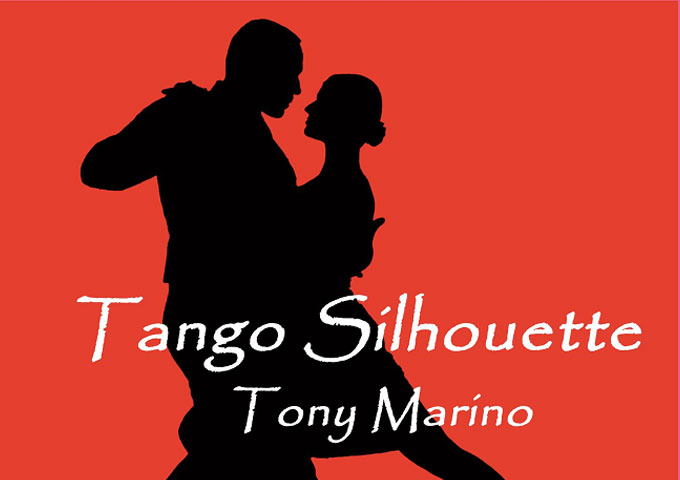The origins of Tango are obscure. There are many theories, but ultimately it is impossible to discover the facts because the records don’t exist. Tango sprang from the poor and the disadvantaged, in tenement blocks and on street corners, amongst people whose lives usually leave little trace in the history books. The earliest evidence of Tango comes from the mid Nineteenth Century in Buenos Aires. Since then, the Tango movement has gone through many evolutions and seen many great interpreters. During the 50’s a young bandoneonista called Astor Piazzolla – who had stayed in the United States as a child, and later on studied classical composition in France – realized that it would be hard to have the success that he wanted by staying within the Tango tradition.
Taking elements of Tango, Jazz, and classical ideas, Piazzolla created what he called Tango Nuevo. He was determined that his music should be listened to rather than danced to. This cross fertilization with North American and European forms created something accessible and appealing to people all over, and garnered Piazzolla huge success in the rest of the world.

Many recent recordings are still heavily influenced or in some way inspired by Piazzolla, one of them being “A Tango Silhouette” by Tony Marino – whose maternal grandmother was actually born in Argentina. Marino came to Tango via his studies with musician and educator Bill DelGovenatore at Sam D’Amico’s Music store in South Philadelphia.
Bill exposed him to many forms of music including BeBop, Afro Cuban Jazz, Brazilian Jazz and many artists. Marino would later expand on those studies with Tom Lawton, another musician and educator. In 1997 he met Breno & Neusa Sauer, and took lessons from Breno, who taught him how to play the tango. He says that both Breno & Neusa were a huge influence in his music path to this album.
Marino also narrates an interesting piece of trivia, about his pursuit of Latin music: “In February of 1987 I heard an interview on the Philadelphia jazz radio station WRTI. The person being interviewed was Paquito D’Rivera. I remember him being funny and during the interview he said “there is a lot more to Latin music than people dancing with pineapples and bananas on their heads”. I remember laughing so hard and thinking this guy is really funny. I only heard the interview and I didn’t hear Paquito’s music until a few days later while driving home listing to WRTI. I remember hearing Paquito and thinking I must get that music.”
Tony Marino would later see Paquito D’Rivera perform live, and fall in love with a song, written by Diego Urcola, called “Blues For Astor”. So all of these events, together with Marino’s unbridled passion for performing music since the seventies, brings us to the 12 inspired tracks on “A Tango Silhouette”.
Marino delivers the rhythms, the syncopations with emphasis on the offbeat, and the frequent use of melancholic minor keys, in a combination which is particularly distinctive of Tango’s qualities. In musical sensibility, Marino’s tango has a lot in common with jazz and classical music. Like Astor Piazzolla, Tony’s music is about innovation, the unexpected; the more you listen to it the more surprises and nuances it reveals.

The album is made up of the songs – “Day Break”, “Sylvana Gene and Stella Tango Medley” (a medley dedicated to Marino’s mother and to his friend and mentor Gene Hebert and his wife Stella), “Lucia” (a composition dedicated to his grandmother), “In the Shadows” (dedicated to people who are friends and family members of people who contribute to a person’s success), “The Chancery Place Tango” (inspired by Marino’s family when they lived in their home on Chancery Place), “Astor and Dizzy Tango Medley” (dedicated to Astor Piazzolla and Dizzy Gillespie).
The album continues with “Circles” (inspired by Hermeto Pascoal), “A Different Time” (starts and alternates between a waltz and a tango), “The Layback Tango” (a song his wife Kristina urged Tony to record), “The Death of a Romance” (a song title created by Marino’s daughter), “The Philly Tango Astornomical Medley” (dedicated to Marino’s hometown Philadelphia, and to Astor Piazzolla), the album close with “That’s It”. Lush harmonies, exquisite orchestrations and an exactness of detail make these performances flawless in every way. It is hypnotizingly seductive.
If Tony Marino’s work, is not yet a part of your musical language, it very well should be. The writing and arrangements transport the listener along an aural journey filled with emotional twists and turns. The musicianship is flawless in all parts, and Marino’s keyboards become both lyrical and almost visual at times. If you only acquire one album of original tango music for your collection this year, you could hardly do better than “A Tango Silhouette”.
OFFICIAL LINKS: WEBSITE – LATIN SOUNDS – CDBABY
You may also like
-
Take Bread Drops “A Real One” Featuring Ahlani Janae Ahead of Flava EP
-
Big Caz, Taase & Harley G Deliver Raw Truth in “You Ain’t My Brother (Remix)”
-
“Bionic” by Spiderweb Brings Together Rock Royalty in a Seven-Minute Instrumental Powerhouse
-
l1l1ann’s “morris” Is a Pop-Punk Burst That Nails the Art of Instant Replay
-
Relapse by THRY Proves Introspection Still Has a Place in Modern Hip-Hop


Cool Music. Different.